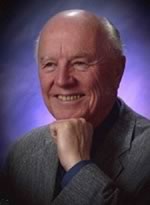JanFeb 2008: Minimizing Masonry Litigation – Avoiding Lawsuits
Words: Bronzella Clevelandby Norm Cooper, P.E.
| |

Norm Cooper, P.E., has served the justice system as a forensic engineer in more than 700 cases. He is included in Who’s Who in American Law and national and international editions of Who’s Who in Engineering. Cooper’s web address is www.realtyengineering.
com.
Upcoming articles will include applications of the above in case studies of disputes and lawsuits involving masonry design and construction. |
General Principles
Whether innocent or guilty, anyone who is designing, constructing, buying, owning or selling can be sued.
Hindsight (said to be 20-20) often will disclose how a lawsuit could have been effectively avoided.
Based in part on the author’s expert witness cases, the general principles in this article and the masonry articles to follow are focused on minimizing disputes and lawsuits.
The United States justice system, born of democracy, may be the best in world history. But as Winston Churchill said, “Democracy is the worst form of government except for all the rest.” Our justice system is far from perfect for several reasons, including: its large consumption of money, time, and emotional energy; its tendency to unconstitutionally legislate from the bench instead of following the rule of law; and its frequent failure to achieve justice in the view of at least half of the parties involved.
Therefore, high priority should be given to actions that will help minimize disputes and avoid lawsuits:
A. Minimize Disputes
Principles that minimize disputes that can cause lawsuits include:
1. Ethics
Following sound ethical principles can be effective in avoiding disputes that result in lawsuits. One option is to follow the Rotary “Four Way Test”: First, is it the truth? Second, is it fair to all concerned? Third, will it build goodwill and better friendships? Fourth, will it be beneficial to all concerned?
2. In writing
Many disputes can be avoided if the parties involved sign a clearly written contract in advance.
3. Communication
Disputes also can be avoided by accessible, pleasant and open communication between parties before, during, and after design and construction.
4. Follow directions
“If all else fails, follow directions” is an amusing way to say failure often can be avoided by reading and following directions from the beginning. A high percent of disputes leading to lawsuits could be avoided by knowing the rules (e.g., building codes) and following them.
It is essential to know what rules apply before designing or constructing. The law, in the form of the applicable adopted building code, takes precedence over other rules, publications or opinions. If the code is silent, published industry standards may be the highest authority (e.g., American Concrete Institute, Brick Institute of America, Building Stone Institute).
The building code adopted by state or local government usually governs most design and construction. The adopted building code in at least in part of all 50 states is now the International Residential Code (IRC) for one- and two-family residences and the International Building Code (IBC) for most other construction. However, it is essential to confirm what code governs by getting a copy of the applicable state law or local ordinance that adopts the code and makes amendments thereto.
The fact that the city (or other authority) may have inspected or given a permit or certificate of occupancy does not assure code compliance and does not relieve anyone of the responsibility for code compliance (IBC 105.4, IRC 105.4, 110.1).
The code (IBC 3401.2, IRC AJ301, 401, 501, 601) requires the owner to maintain to the code that was in effect when constructed, but conform alterations, renovations and repairs to current code. However, the building code (IBC 101.3, 102.1, 115.1), not the residential code, requires the owner to keep all items involving safety to current code.
In some areas, there may be no adopted building code (e.g., all of Texas outside incorporated cities), but the code adopted nearby may be the accepted practice and has always prevailed in the author’s cases.
B. Avoid Lawsuits
Even if parties cannot agree, there are steps that can avoid lawsuits:
Expert witness
A report from a qualified, unbiased expert witness can be an effective way to resolve a dispute prior to a lawsuit.
Unlike a lawyer who is an advocate for his client, an expert witness should only be an advocate for the truth. A capable expert witness should be highly qualified and should report on objective, verifiable facts instead of subjective feelings.
If the issue is technical or engineering, the expert witness should ideally be a Fellow or member of the National Academy of Forensic Engineers (www.nafe.org) who are all licensed professional engineers, members of their specialty technical society, and experienced in giving testimony under oath and under cross examination.
Mediation/Arbitration
Mediation and arbitration are other methods to resolve disputes prior to lawsuit. But a qualified expert witness (e.g., forensic engineer) still is necessary and can make mediation and arbitration unnecessary.
Save